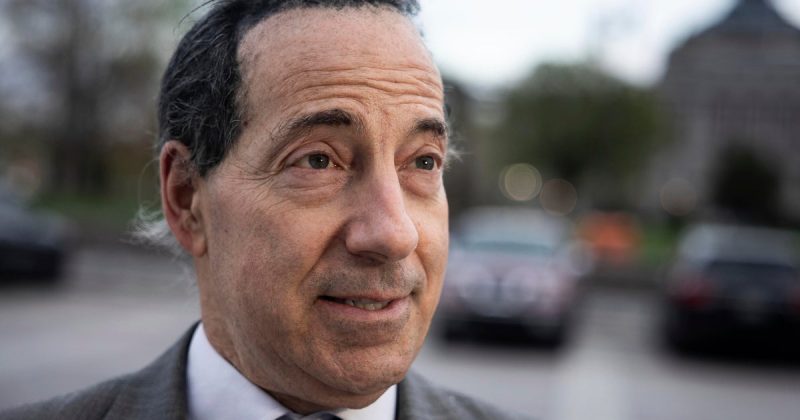
Rep. Jamie Raskin, the top Democrat on the House Judiciary Committee, is demanding answers regarding President Trump’s recent wave of pardons. He alleges that the process has deviated from established norms, transforming into a system of rewarding loyal supporters and generous donors rather than a fair evaluation of individual cases.
Raskin’s letter to the newly appointed pardon attorney, Ed Martin, requests a detailed explanation of the criteria used to vet these pardons. Dozens of individuals received pardons this week, including several convicted of white-collar crimes, further fueling concerns about the fairness of the process. Among those pardoned were reality TV stars Julie and Todd Chrisley, former Rep. Michael Grimm, and former Virginia Sheriff Scott Jenkins, all convicted on various fraud and tax-related charges. Additionally, Trump commuted the sentence of a notorious Chicago gangster and a rapper convicted of felony gun charges.
The timing and nature of these pardons raise serious questions. Several recipients, and their families, have openly supported Trump, with some even making substantial financial contributions to pro-Trump committees. This has led Raskin to accuse the administration of using the pardon process to reward political loyalty and financial generosity, effectively bypassing the traditional application process. This traditional process, typically involves a thorough review of the applicant’s case, consideration of factors like acceptance of responsibility and time served, and is handled by the U.S. pardon attorney’s office. Raskin contends that none of the recent pardons seem to meet these established standards.
The Justice Department’s response to Raskin’s letter was dismissive, deflecting the criticism and suggesting a double standard. The president’s power to pardon is constitutionally vast, but Trump’s use of this power has drawn considerable criticism, particularly with the pardoning of individuals convicted in relation to the January 6th Capitol riot. Further fueling the controversy, Trump recently indicated he would consider pardoning those charged in the plot to kidnap Michigan Governor Gretchen Whitmer, and Martin has reportedly discussed pardon applications for remaining Jan. 6th defendants who haven’t received clemency.
Martin’s appointment itself is noteworthy. He was moved to the Justice Department after failing to secure Senate confirmation as U.S. attorney in Washington, D.C. His additional role as director of the Justice Department’s “Weaponization Working Group,” tasked with reviewing Biden-era activities, adds another layer to the ongoing political tensions. Martin’s own social media post, stating “No MAGA left behind,” further underscores the perception of a politically motivated pardon process. The situation highlights a significant clash between the executive branch’s power of pardon and concerns about fairness, transparency, and the potential misuse of this considerable authority.










